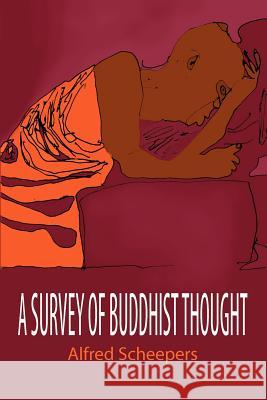A Survey of Buddhist Thought » książka
A Survey of Buddhist Thought
ISBN-13: 9789077787403 / Angielski / Miękka / 2012 / 384 str.
(revised edition) General in its approach, yet penetrating, this book allows the reader to become acquainted with the highlights of Buddhist philosophy. It not only treats the ideas of the founder of the religion, but follows the development of his thought through the ages. It points out how these ideas were used by the psychologists of the Abhidharma, how they issued in the mystical conceptions of Mahayana. But before all, the book treats the more intellectual notions about time and being as found in the Madhyamaka and Yogacara, and it analyses the logic of Buddhist idealism.Then the reader leaves India and goes to China to become familiar with the epochal figures of Sengzhao and Xuanzang, learns about the Garland and Tiantai schools, and, finally, he is led through the Japanese Zen Buddhism of Dogen and Hakuin. Is there another book that offers a similar broad view in such a small space? ______________________________ "Why is some of the best contemporary work work on Indian philosophy authored by non-Indians? Is it because we are so mired in our prejudices and condition, that we fail to develop a proper sense of perspective and therefore the objectivity required for correct analysis? Alfred Scheepers' overview of Buddhist thought ranging from its inception to its spread into the Far East, is easily one of the most comprehensive contemporary works on the subject. And I say this despite the presence of a host of hefty tomes on the subject lying on my desk. The book is wrtitten with a unique flair, a love of the subject, and although the author displays a tremendous scholarship for his material, his writing comes across as crisp and easy. Such is his masterly presentation that the entire ambit of Buddhism is dealt with within 300 pages and one never gets the feeling that the volume is only an verview. From Abhidharma to Hakuin, Scheepers explores, analyses and quotes with remarkable fidelity. He is careful not to impose his own values but considers the evidence with the eyes of a man seeking enlightenment" "The Quarterly Review of Books," Bombay, June 2000











